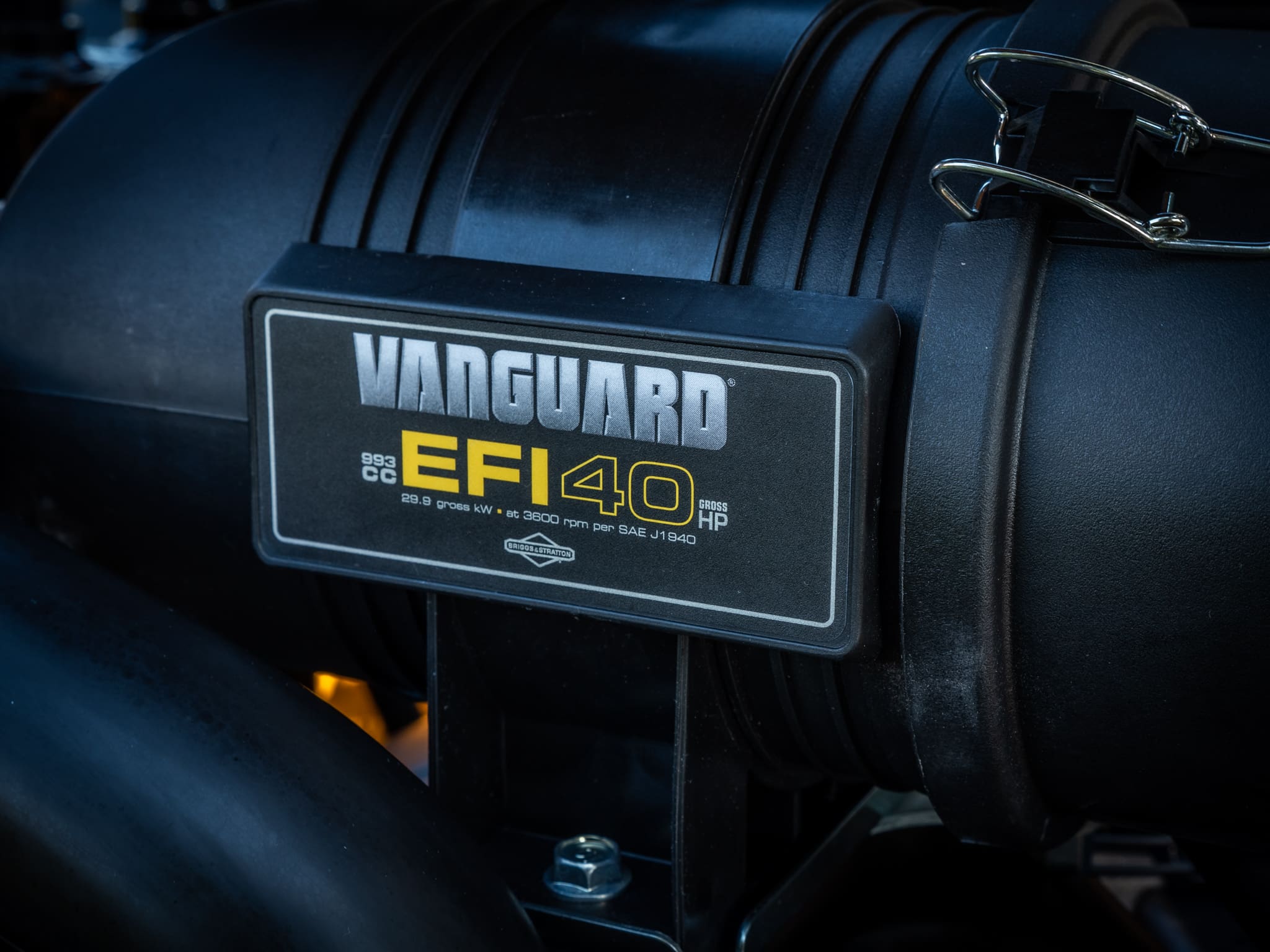
Sponsored Content
Labor shortages, a renewed need for landscape work and the desire to do more with less are just a few of the challenges facing the lawn care and landscape industry today.
As professionals continue to navigate these challenges, they are relying on their equipment more than ever to deliver powerful performance and maximize productivity. Staying on top of both preventive and routine maintenance is critical to keeping operations running, mitigating equipment failure and limiting downtime on the job.
“Maintenance is often seen as a hassle, but with recent industry advancements in engines and engine design, it doesn’t have to be,” says Randy Lockyear, senior director of sales for Briggs & Stratton. “In response to customer feedback, many manufacturers are turning their focus to developing and designing features that reduce maintenance requirements and the associated downtime.”
Extending Maintenance Intervals
Whether it’s planned or unplanned, downtime affects the bottom line. When equipment is in the shop for maintenance, it’s not out on the job making money.
To help bolster crews’ productivity and decrease downtime, engine manufacturers like Vanguard® have developed solutions that extend maintenance intervals so that crews can focus on getting the job done. Some of these advancements include innovations that extend the period of time between oil and air filter changes.
Regular oil changes are crucial to sustaining performance throughout the life of the engine, and skipping oil changes may lead to significant engine damage. Relying on oil past its service life means relying on oil with decreased viscosity and a diminished ability to correctly clean, cool and lubricate an engine — all of which may lead to lower engine performance capabilities and lasting damage.
The industry is starting to see advanced oil management systems and improved oil formulations that extend oil change intervals. For example, the Vanguard Oil Guard™ System is an innovation that helps improve productivity by moving oil through a six-quart external reservoir and aluminum housing that was designed for cooling. These features allow users to go 500 hours between oil changes — five times the industry standard. Oil Guard also makes oil changes cleaner, faster and easier so users can spend less time servicing their equipment and more time cutting.
“Despite these advances, it’s still important to know and understand the guidelines for your fleet’s specific engines,” Lockyear says. “Changing oil too often can waste resources, while waiting too long can lead to engine damage. Knowing your engines’ oil change intervals and adhering to that schedule ensures your fleet can run like a well-oiled machine, literally.”
An engine’s ability to breathe clean air is another important factor that helps to ensure that an engine runs healthily and at peak performance. Lawn care and landscaping jobs tend to create a lot of debris that can clog up equipment.
“The best way for users to ensure that their equipment is able to run cleanly is for them to stay on top of air filter changes,” says Lockyear. “However, it can be easy to forget or neglect to check whether an air filter needs replacing.”
Generally, air filters should be changed every 100 to 250 hours, depending on application and filter type. But advanced technologies, like the Vanguard Cyclonic Air Filtration System, help reduce maintenance by doubling air filter replacement intervals to 600 hours.
Power Solutions Help Optimize Uptime
“Manufacturers like Vanguard are focused on developing power solutions with practical innovations that translate to a real impact on your bottom line. Innovations like Electronic Fuel Injection (EFI) and Electronic Throttle Control (ETC) technology are greatly improving fuel efficiency for applications within the landscape equipment market,” explains Lockyear.
Vanguard EFI and ETC technology offers easy, all-weather, chokeless starting. By pairing EFI technology with an ETC system, operators can count on better fuel efficiency, improved overall performance and smooth and consistent power with any load size or terrain type they encounter.
Another challenge facing the landscape industry is changing emissions regulations. In recent years, regulations around emissions levels from lawn care and landscape equipment have become increasingly stringent, leading to an increased demand for alternative power solutions that will deliver reliable performance while meeting those new standards.
As more landscape professionals look toward electrifying their fleet, manufacturers are also making advancements in battery power, which provides zero emissions at the point of use. Vanguard Lithium-Ion Commercial Battery Packs offer equipment manufacturers a total solution for landscape equipment applications with easy integration and rugged performance.
Providing unmatched power, reduced maintenance and lower total cost of ownership, Vanguard Commercial Battery Packs feature roll cage and diecast enclosure designs, which deliver maximum protection and are tested to withstand harsh conditions, including extreme temperatures and vibrations as well as excessive moisture and dirt. These features make the battery packs ideal for landscape applications. The integrated Battery Management System (BMS) monitors the pack’s voltage and temperature to ensure safe and efficient operations.
“As emission standards and environmental regulations become more stringent, we anticipate that there will be a lot more emphasis placed on electrification and more innovations in the EFI technology space,” Lockyear says. “As a leading manufacturer of engines and battery packs, we are committed to innovating new solutions that help lawn care professionals take on their toughest jobs.”

